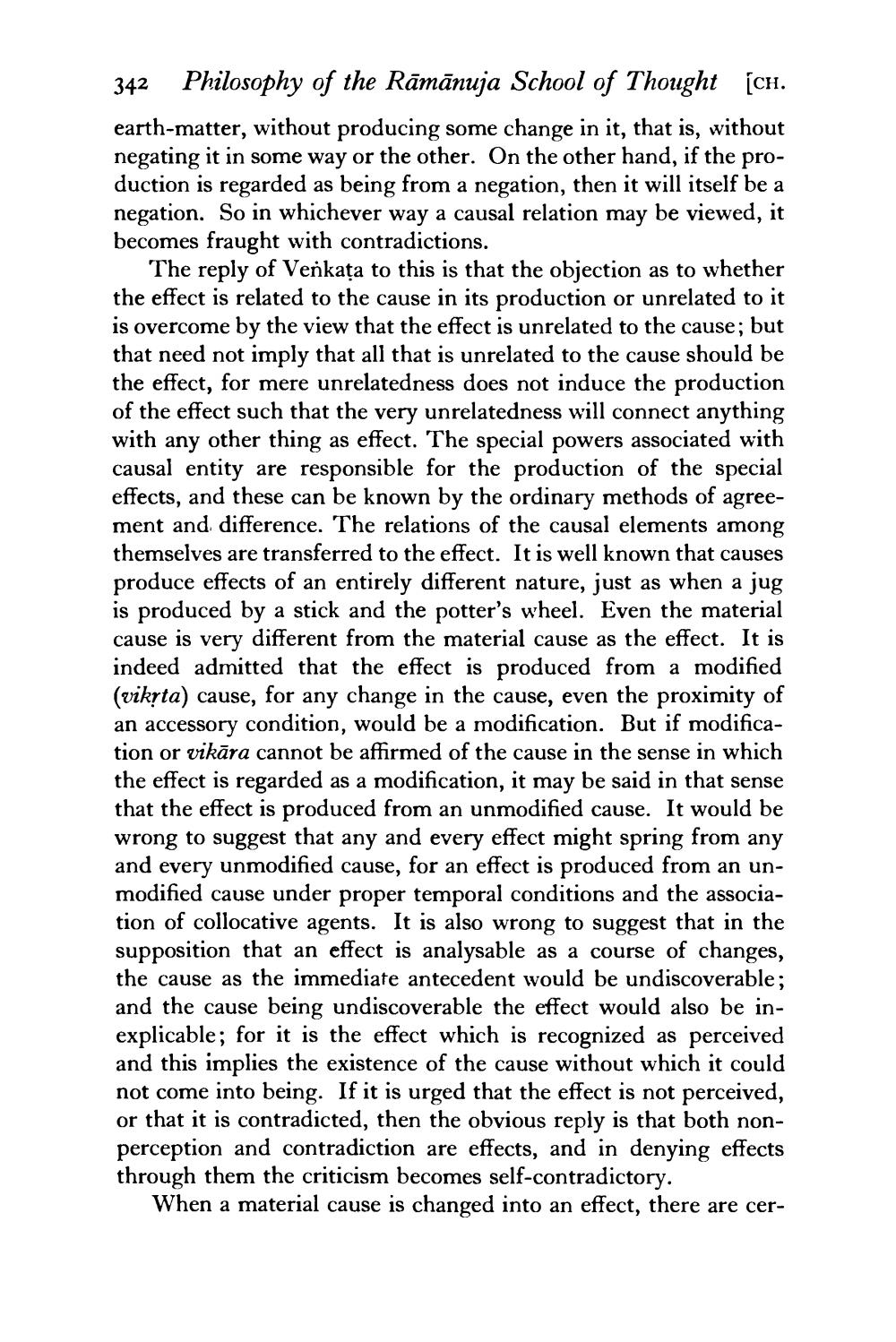________________
342 Philosophy of the Rāmānuja School of Thought [CH.
earth-matter, without producing some change in it, that is, without negating it in some way or the other. On the other hand, if the production is regarded as being from a negation, then it will itself be a negation. So in whichever way a causal relation may be viewed, it becomes fraught with contradictions.
The reply of Venkata to this is that the objection as to whether the effect is related to the cause in its production or unrelated to it is overcome by the view that the effect is unrelated to the cause; but that need not imply that all that is unrelated to the cause should be the effect, for mere unrelatedness does not induce the production of the effect such that the very unrelatedness will connect anything with any other thing as effect. The special powers associated with causal entity are responsible for the production of the special effects, and these can be known by the ordinary methods of agreement and difference. The relations of the causal elements among themselves are transferred to the effect. It is well known that causes produce effects of an entirely different nature, just as when a jug is produced by a stick and the potter's wheel. Even the material cause is very different from the material cause as the effect. It is indeed admitted that the effect is produced from a modified (vikṛta) cause, for any change in the cause, even the proximity of an accessory condition, would be a modification. But if modification or vikāra cannot be affirmed of the cause in the sense in which the effect is regarded as a modification, it may be said in that sense that the effect is produced from an unmodified cause. It would be wrong to suggest that any and every effect might spring from any and unmodified cause, every for an effect is produced from an unmodified cause under proper temporal conditions and the association of collocative agents. It is also wrong to suggest that in the supposition that an effect is analysable as a course of changes, the cause as the immediate antecedent would be undiscoverable; and the cause being undiscoverable the effect would also be inexplicable; for it is the effect which is recognized as perceived and this implies the existence of the cause without which it could not come into being. If it is urged that the effect is not perceived, or that it is contradicted, then the obvious reply is that both nonperception and contradiction are effects, and in denying effects through them the criticism becomes self-contradictory.
When a material cause is changed into an effect, there are cer




